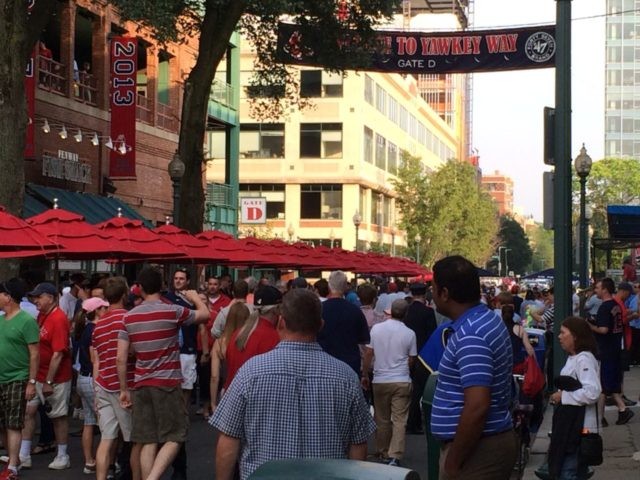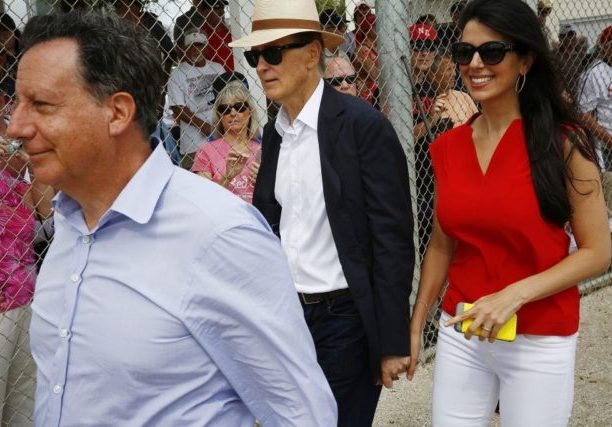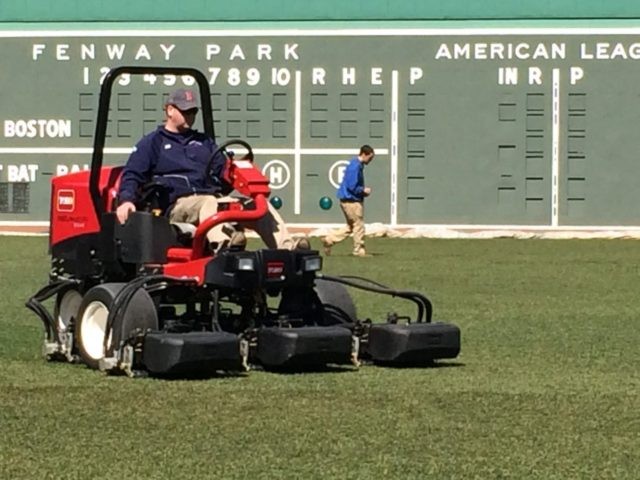The mania to tear down politically incorrect statuary and memorials invades Brahmin Boston from the Old Confederacy.
The owner of the Boston Red Sox wants the team’s host city to change the name of a street honoring a past owner of the Boston Red Sox.
John Henry pressures the city of Boston to remove Thomas Yawkey’s last name from the short street that roughly parallels the park’s third-base line. Yawkey, a Hall of Famer who owned the team from 1933 until his death in 1976, became the last baseball bigwig to sign an African American player. This ignominious distinction led to whispers of racism in his lifetime that grew louder in the roughly four decades since his passing.
“The Red Sox don’t control the naming or renaming of streets,” Henry told the Boston Herald this week. “But for me, personally, the street name has always been a consistent reminder that it is our job to ensure the Red Sox are not just multi-cultural, but stand for as many of the right things in our community as we can – particularly in our African-American community and in the Dominican community that has embraced us so fully. The Red Sox Foundation and other organizations the Sox created such as Home Base have accomplished a lot over the last 15 years, but I am still haunted by what went on here a long time before we arrived.”
What went on during Yawkey’s tenure mainly involved heartbreaking losses. Despite boasting Ted Williams, Carl Yastrzemski, Jimmie Foxx, and other sluggers, the Thomas Yawkey-era Red Sox fell short of the ultimate goal in all of the Detroit-born industrialist’s seasons in the owner’s box, losing in the seventh games of World Series in 1946, 1967, and 1975. But Yawkey, who died of leukemia, posthumously became a winner in the eyes of many fans as his family fortune bankrolled cancer research with tens of millions of dollars in gifts.
Yawkey’s stature as a philanthropist, and reputation as loose-fisted when it came to paying players, earned him local popularity. Journalists, vendors, and home plate, box-seat ticketholders enter the park through the gates on Yawkey Way. Commuter rail passengers arrive at the park at Yawkey Station. Boston University, the Dana-Farber Cancer Institute, and other city institutions boast centers bearing Thomas Yakwey’s name.
So changing the small section of Jersey Street renamed Yawkey Way in 1977 presumably serves as Stage One in a grander “banned in Boston” scheme. Illustrating the difficulty of carrying out this vanishing act is the resilience of the one memorial to Yawkey fully in John Henry’s control to erase. The Green Monster’s hand-operated scoreboard contains two sets of initials—JRY for Jean Remington Yawkey and TAY for Thomas Austin Yawkey—in morse code. Like the lone red seat in the bleachers or Pesky’s pole, the dots and dashes on the scoreboard remain part of the park’s charm and lore that John Henry, in preserving and upgrading the “lyric little bandbox,” remains committed to.
Some city fathers may balk at redacting the name of such an important figure in the team’s history when the man calling for the move refuses to remove the symbolism memorializing the past owner on prime real estate within the park. But during his tenure Henry actually convinced local politicians to close off Yawkey Way to motorists, and shoo away sausage vendors, to effectively expand the Red Sox moneymaking operation onto a city street. If Henry, who also owns the Boston Globe, could convince the city of Boston to effectively give him a public street during game days, then the notion of him persuading politicians to change the name of that street does not seem terribly far-fetched, particularly in a hotbed of liberalism during a time when officially sanctioned vandalism of memorials appears de rigueur.
The leading candidate to replace Yawkey’s name on the street sign? Henry proposes “Big Papi Way” or “David Ortiz Way.” But as Henry looks to forget Yawkey he may have already forgotten that earlier this summer he attended a ceremony renaming another street “David Ortiz Drive” and last fall participated in the festivities naming a bridge in the Dominican designated hitter’s honor.



COMMENTS
Please let us know if you're having issues with commenting.